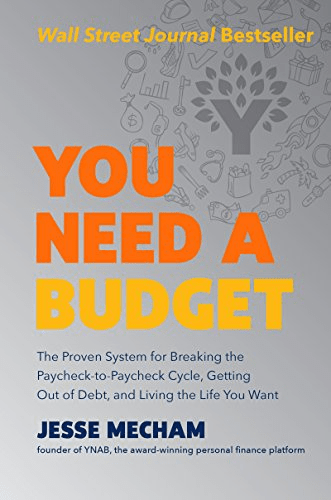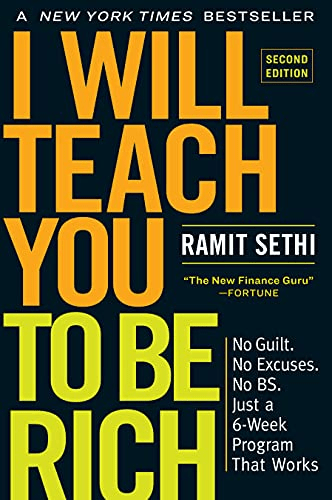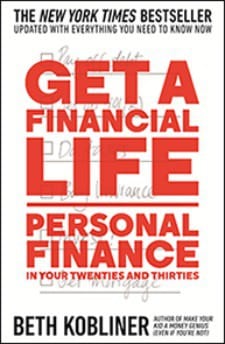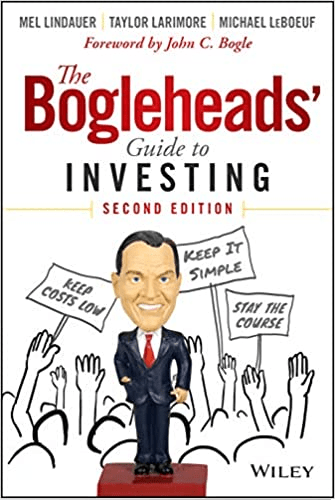Tales from the Wallet: Finding a Financial Planner
This post may contain affiliate links and Corporette® may earn commissions for purchases made through links in this post. As an Amazon Associate, I earn from qualifying purchases.

When should I get a financial planner? What are the best tips for finding a financial planner I like? These are some of the biggest personal finance questions we've gotten over the years — but I've never hired one, so I asked Corporette editor Kate Antoniades to ask the experts for us.
This is her first post for Corporette, so a big welcome, Kate! —Kat
How do you find the right financial planner? And once you do, then what? Reader K, one half of a childfree couple (also known as DINK, double-income-no-kids), asks:
My husband and I are early 30s, both professionals, and we are what are considered a childfree couple. We've known for many years that we don't want to have children. We're at a stage in our lives, financially, where we'd like to consult a financial planner to start mapping out our next money moves. The thing is, we can't seem to find anyone who might specifically cater to childfree couples. The considerations are different than those with children — estate planning comes to mind first and foremost — and yet, the closest we can get is the LGBT financial planning niche, where the considerations are still not quite the same. Long term health planning is not one of the concerns we find most pressing, actually, so we're more focusing on retirement and estate planning.
This is a great question that most likely applies to many Corporette readers.
(Psst: If you prefer to manage your own money like Kat, we've talked about some of the best starter personal finance books, how to manage multiple accounts, and even what our general money roadmaps look like.)
Here are the answers to some common questions about finding a financial planner to meet your needs:

Psst: In honor of this series' original title, Tales from the Wallet — here's a wallet we love!

Do I need a financial planner?
Choosing to work with a financial advisor is a smart move, says Farnoosh Torabi, financial expert and author of When%20She Makes More: 10 Rules for Breadwinning Women: 
“A financial planner can help prioritize your spending, saving, and investing to help you achieve your goals,” says Torabi, who adds that a professional can also act as a mediator for couples who are having disagreements about money.
What are the best tips for finding a financial planner?
Financial planners often focus on a particular type of client or specific situations, says Shannon McLay, a financial planner, author, and entrepreneur. “You have generalists that can help with just about everything, like investing, estate planning, and insurance, and then you have specialists who assist specific groups of people with solutions like elder care and special needs, or LGBT couples,” she says.
Torabi and McLay agree that a good first step is to ask friends, family, and colleagues for recommendations. They also suggest checking out online resources, such as NAPFA, NerdWallet, or CFP Board. This Lifehacker post has some good advice as well, coming from the Three Thrifty Guys.
How do I choose the right financial planner?
It may take some time to find the right professional, says Torabi, who recommends interviewing at least four or five planners before making a decision. The first meeting is typically free of charge. “In that meeting, you should ask a lot of questions and the planner should show interest in you, your goals, and needs,” she says.
McLay echoes her advice, emphasizing the importance of finding someone you're comfortable being honest with — there's a “personal” in “personal finance,” after all — and who really listens to you.
Should I work with a fee-only financial advisor, or find a financial planner who works on commission?
It’s often wise to choose a fee-only planner, says Torabi. Because he or she doesn't make money off specific recommendations, you don't have to worry as much about conflicts of interest. How can you tell which kind of planner you’re meeting with? “You have the right to know,” she says. “Ask: ‘Do you charge a fee or is your income based on commission?'”
If you choose a fee-only planner, says McLay, be aware of what you’re being charged for, and watch out for extra fees. “I would just make sure that you are getting what you pay for from your planner,” she says. “I see many planners who charge fees and don't necessarily provide results or high-quality service.”
How often should I meet with a financial planner?
When you've found the right advisor, how often should you get together to discuss your financial life? Torabi recommends meeting on a quarterly basis and also making sure to touch base before significant life changes such as marriage, retirement etc.
A lot of people make the mistake of not meeting with their financial planner often enough, says McLay, and in turn, any financial plans that were created don't get used. “At the very minimum, you should meet once or twice a year; however, quarterly is ideal, even if it's just a phone call,” she says. “Our lives are constantly changing, and regular meetings ensure that you and your planner aren't missing out on making changes or adjustments to the plan based on your life changes.”
What if I'd rather manage my money on my own? Do I really need to work with a planner?
Not necessarily, says McLay.
I think that if you feel comfortable with your investments and you do the basic investment management process of picking the right asset allocation and rebalancing at least once a year, then you probably do not need a financial planner. …
The value of a financial planner is to act as the ultimate backseat driver for your financial journey to retirement. When you find the right one, he or she will keep you on your path.
Readers, do you have financial planners? What are your best tips for finding a financial planner — and have you ever decided to switch financial planners, or to stop using one you've chosen?
Stock photo update (2021) via Stencil.
These are some of our latest favorite financial books for beginners:







I’d also like to know at what point a financial planner is worth it?
+1. I want to know this too.
I also want to know if people prefer the planner whom they can meet in person or some one who can provide you the service online and talk to you on phone if needed. I have read that online service providers cost less than in person service providers
We have had same financial planner for almost 7 years now and love him. To answer your question, we hired him when I was still in law school (but my DH is 5 years older and had worked for a while before). I would guess that we had a total of $200 K in assets (not including our home). The main reason we decided a planner was the way to go was because we wanted a third person to be on top of our finances (meaning, buying and selling stocks and keeping tabs on when stocks are hot/not, which we would never do ourselves). Through our planner, we have drastically diversified (when before, we pretty much had everything sitting in a CD).
7 years later, our assets are closer to $1.7 M (and we sold our home several years ago). Obviously that is largely through high salaries and saving aggressively, but I also attribute to the huge dividends we have seen through having a planner.
We don’t use a financial planner. DH has worked in the finance and tech industries and he has a v complicated budget for us worked out (in Excel), so we can plug in different variables (raises, salary cuts, school costs, etc etc) and see how it affects our 10-year projection (we don’t go out further than that). We have rough budgets in there for everything, and occasionally we go into mint and see what we are actually spending on things. For example, we were spending more on gas than we thought, but less on CVS/toiletries etc., so we made adjustments to those categories. For a while (about 6 years!) we had diapers in as a separate category, etc.
We worry more about life insurance than disability, so we have about $2M each in life insurance. We may adjust that amount later as the terms expire and our needs change. I have heard from people in the insurance industry that there are new products combining long-term care insurance with life insurance, because long-term care wasn’t profitable for them any more. So if the OP is worried about retirement and health issues, she might want to check that out.
I think a financial planner IS worth it. You need to know how much to save, how much to spend and how much to reserve for the future. Most peeople have to pay for a FINNACIAL Planner, but I have my dad to handel all of this for me. YAY dad!
My dad has an MBA and a PHD in finance so I get all of this for NOTHING! I let him handel EVERYTHING for me, rangeing from buying my coop, paying my morgage, maintnanace, and balanceing my checkbook and makeing all of my INVESTEMENT’s with help from Ed, who has it at Meryll Lynch. With all of these expert’s I do NOT have to do anything. Once a year, dad doe’s my tax returns and file’s them for me. I do NOT even have to sign it now b/c he does it on his MacBook! DOUBEL YAY! So don’t ask me anything about taxe’s — I just send every question to him.
But that is along way of saying that if you have a dad like this, you have a built in financieal planner. Dad wants me MARRIED so he can foyst this off on my husband. But now, there are no guy’s out there willing to take this on. I just want a guy who makes alot of money so he can hire a finanecial planner for us and I can just be a lawyer and go shoppeing! YAY!!!!!
Men seem to do everything for you other than provide you with a sexual release. You should try it. You’d like it.
I found my planner via a friend’s recommendation. I love her. Her fees are tied to our account value vs. a flat fee- so it’s in her best interest that our accounts do well.
When we started using a financial planner it was to roll over some old 401ks and help us figure out a savings plan for a new home. But, it’s turned out to be a great door opener for conversations my husband and I would not have necessarily begun on our own. Additionally, we found out that he and I are invested in pretty much the exact same retirement funds, which is not helpful if it tanks, because then we’re both sunk. So, a third pair of eyes on our situation has been really helpful.
I know that fee based financial planners need you to have certain net worth or at least certain amount of money to invest.
At how much cash or investment amount would you consider using a financial planner versus doing it on your own? 50k, 100k, 200k, or even more?
If I were single (eg my DH weren’t around) and had to do it by myself, probably $1 or $2M. With DH, we probably won’t use one unless we get super rich ($10M or more).
Related to jmoore’s post, how do you understand the financial planner’s fee structure? If the planner takes a certain percentage of assets under management, is that a flat fee or a commission?
Also curious to know whether anyone has any experience with LearnVest planners and if they thought it was worthwhile.
Usually the asset-based planners take 1% of the first $1M, then 80 basis points on $1 to $5M, then 60 basis points on the remainder, or something like that. Flat fee-based is usually per consult or hourly.
Most financial planners overcharge. Invest in an index fund that is a no-load fund. That’s what I do.
If anyone has any recommendations for a CPA in the Metro DC area (preferably NOVA), please share. My income may top over 200K this year, and I am thinking that Turbotax just might not cut it for filing my taxes anymore.
I still don’t really feel like I know how to find a financial planner. I appreciate the options presented but sometimes I wish someone would just go, “Call Tom, he’s great.” I’ve tried asking friends and they either have no idea what I am talking about, do it themselves like Kat, or use someone their parents have that won’t talk to me until I have a LOT more money or use someone random and commission-based at Charles Schwab or the like…. the last is the most helpful recommendation I guess, but then I always read that you should do fee based vs. commission so I don’t want to call that person.
On an aside, every time I go to the bank they offer to talk to me about my money — has anyone just done that? I have to admit I feel vaguely distrustful of people who just sit in a branch offering financial advice but maybe I’m wrong?
I’ve talked to my account manager at my bank about my money – we didn’t get into investment strategy or stocks recommendations or anything that I expect a financial planner would do. However, what was helpful was recommendations of how the different account types etc. can help me meet my goals.
It wasn’t anything groundbreaking or anything, but for a free, 15-min consultation type thing, I found it helpful and have implemented her strategies with my bank accounts.
Ive always heard the advice to keep your banking and investing separate and that investing through your bank is a bad idea.
I dont use a planner but i think Dave Ramsey’s website has a list of advisors who take on clients with very little money. I think it is a combination of fee only and commission based planners.
I also feel like I got better big picture financial advice from people who were not financial planners. In our case, it was people that we know and trust (both in business and in general) that handle our insurance – we have house, business, car and a small term life insurance policy from one person, and a larger life insurance policy from the other. They were both willing to look at our big picture (where do we have money invested, what do we owe, will we be more likely to be in a higher tax bracket now or when we retire etc) and help us make good decisions both on insurance and some of our other investments. Most of the financial planners or investors we talked to seemed only interested in talking about the money we were placing with them, and didn’t want to listen to us if we didn’t agree with their financial strategies 100% – like Senior Attorney mentions below, they seemed to have a “one size fits all” approach, and didn’t seem to ask or care about our individual situation or other investments.
But we are definitely outside of the norm as we don’t have much money in investments on the stock market – pretty much only my 401k up to the company match, plus one small investment account. The rest of our money is in physical things like real estate and a small amount in gold and silver (long backstory but basically part of a hedging our bets on multiple fronts angle).
+1
A few more things to keep in mind (I work in the industry, but in compliance)…A financial planner will not just do asset allocation for you, but will also keep on top of changes in your investments. For instance, if a fund you have owned for years has a new manager or makes a change in its objectives, your planner can evaluate the change and help you decide whether to keep or sell that fund.
For costs, a fee-based planner will charge based on a percentage of assets under management. So it may seem like fees are transparent. They are not. If you invest in mutual funds, pay attention to what class of funds you are in. Look at the expense ratios for each fund compared to other similar funds. Your planner may be able to help you invest in low-fee institutional classes OR the planner can direct you to higher fee classes where she or her firm will get additional revenue sharing. For core assets, like large cap equities, consider an ETF instead of a mutual fund. Those will track market indexes with much lower expenses.
I use a planner who I like and trust. I also continually ask about moving into lower cost options for the same asset allocation. I will pay someone to help with forecasting, asset allocation, etc. but still need to take some responsibility for my investments.
I was all gung ho to get a financial planner after my divorce, but after a couple of consultations I have really soured on the idea. The first guy was a commission-based planner who was all hot to sell me an annuity even though I have a defined-benefit pension. Uh, no. I felt like he and the others I’ve seen have their one-size-fits-all strategies that they recommend for everyone, and they had no interest in figuring out my individual situation and goals. I am an intelligent and informed person and I feel like at this point I can captain my own financial ship.
So at the moment I’m just pouring every penny into the giant house renovation! (Kidding…. really!)
Most financial planners pounce on women who are recently divorced because they are low hanging fruit in the industry. I am not married, but see how dumb most women are after divorce because they’ve all let their ex’s do the planning, and now are out there with at best a lump sum settlement that they don’t know how to invest.
I recommend staying away from the planners and putting it all in an index fund. It remains liquid, and you’ll have it if you need it later.
I can’t believe the “experts” consulted for this article didn’t provide the most basic advice for choosing someone to provide you with financial advice/recommendations: make sure the person is registered and review any disciplinary history they may have. See http://www.sec.gov/investor/brokers.htm
It is also important to understand brokers are held to a different standard (suitability) than investment advisors (fiduciary/best interest). http://www.nytimes.com/2010/02/18/your-money/financial-planners/18TRUST.html?pagewanted=all&_r=0
I don’t use a financial planner yet, but that’s because: (a) the bulk of my assets are in my retirement funds, most of which are with Vanguard; (b) DH and I don’t have over $1M in assets; and (c) I’m into personal finance — one of the reasons I switched from litigation into estate planning — so I like managing my own money and doing things like rebalancing and asset allocation myself. I was also raised by parents who did all their own money management and have always strongly advocated for things like index funds, low fees, and buy-and-hold vs. active trading. All that said, I will very likely look for outside advice if/when we get close to that $1M liquid assets mark.
For those struggling to find good recommendations — my suggestion is to ask your estate planning attorney, if you have one, or a friend who is or who knows an estate planning attorney. We recommend only those other professional advisors we think are top-notch, because if we send a client to a financial advisor who turns out to be a dud or worse, it reflects so poorly on us. If you work with a CPA to prepare your tax returns, that person should have some good referrals as well — though I’d be wary of any tax preparer who says, “Oh, I can fill that role for you too!”
I’m also half of a DINK household. I’ve been seeing a fee-based financial planner since I got my first real job (software engineering, not law). At the time, my goals were to pay off my student loans, figure out retirement, and determine if and how to buy a home in the crazy real estate market that is Silicon Valley. Now that I’m married and have the home and won’t have kids, the job is to figure out what’s next. We’re in the midst of looking at options.
I found my advisor because my then-employer offered a discount with them (where “them” is now Ameriprise). I interviewed a few advisors to see who understood my goals, my tolerance for risk, and my perspective as a first-generation college graduate with no one in my family to ask for guidance. I picked him out pre-marriage, and we’ve continued with him. We bought the house, earlier than I anticipated. Our retirement savings are going swimmingly. Now we’re trying to nail down more financial goals that make sense for us. Last year, when I changed jobs, he was very helpful in helping me think through three job offers that were very different in terms of salary, bonus, and stock. Being able to determine the relative value of each of those for me helped in compensation negotiations.